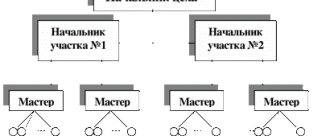In a small company where there are not many documents, the general director copes with them himself, perhaps with the help of a secretary. But as the business develops, the number of documents grows, the number of cases of the first person also does not decrease, and at one fine moment a decision is made to transfer the authority to work with documents to deputies and other top managers. In this article we will look at how to do and arrange it correctly.
Documents are different documents. Of course, most of them are routine, on which it is really a pity to waste the CEO’s time. But among this routine, something important can slip through that cannot be missed.
What is the role of secretaries?
The assistant to the general director, secretaries (assistants) of other top executives, as well as clerks in the office who are responsible for receiving documents must, without exaggeration, know by heart the system of document distribution in the organization. It's part of their job. The clerk, receiving and registering incoming messages, must immediately determine who will receive this letter and transfer it to the “right” secretary. The secretary, in turn, knows very well which documents his boss can sign and which cannot. Often he must know this even better than the boss in order to be ready to answer his question: “Do I really have to sign this?”
Thus, before getting into the folder “For signature” with the director of the direction or deputy general, the document goes through a filter represented by the secretary. If there is the slightest doubt, old documents are found that detail who should sign what.
Next, we will divide all documents that come to be signed by top managers into several groups and describe the nuances of transferring authority for each of them.
Review of incoming correspondence
The first thing that the general director can painlessly delegate to his subordinates is work with general office documents, in particular with incoming ones.
You can filter inboxes for submission for consideration:
a) by topic;
b) by counterparties.
Documents are most often distributed by topic or area of activity It is logical that all letters on marketing topics are sent to the marketing director, on production activities - to the production director, etc. This saves time and shortens the letter route in the organization, since the general director will still make similar resolutions.
to counterparties , but this way of organizing work also exists when, regardless of the main activity of a top manager, he manages several key clients or is engaged in representative activities with “his” list of regional district administrations. Then all letters from a certain list of organizations are transferred to the appropriate top, regardless of whether there is advertising or construction. The top manager will fulfill the request through internal correspondence. This is not the most rational approach to organizing things, but it is also used.
Signing outgoing correspondence
For the same reasons - to shorten the route of documents - the general director instructs his deputies to sign outgoing letters. If the content of the letter concerns highly specialized issues in which the deputy general director is clearly better versed than himself, then the director will not sign the letter without a deputy specialist visa.
The general director can leave behind his signature only particularly important outgoing documents, the content of which is of fundamental importance for the organization.
Should deputies be instructed to sign orders for core activities?
No. The order on the main activity is issued under the conditions of sole decision-making by the general director. Therefore, if the general is healthy and at work, then he must sign the orders himself. In the absence of the director, the signing of orders (all or only some) can be transferred to the deputy by proxy.
Why do you need a decision to extend the powers of the LLC director?
The decision as a document regulating the activities of an LLC is always drawn up by its sole owner. Based on the founder’s decision, an order is then issued to extend the powers of the manager. If there are at least 2 owners of the company, then the document performing a similar legal function will be called a protocol (adopted by the meeting of owners).
The purposes of decision-making, like protocols in an LLC, can be very diverse. By issuing decisions, the sole founder, in particular, appoints and also extends the powers of the head of his organization.
The maximum term of office of the general director of an LLC according to the Charter is 5 years. This means that upon its expiration or as this period approaches, the corresponding powers will need to be extended.
In this case, it does not matter for how long the employment contract with the general director is concluded (or even whether it is concluded at all, if the founder appoints himself as general director). However, if a manager who has a valid employment contract does not have the powers established by the owner’s decision, then he will not be able to carry out his labor duties in practice: his signatures will be invalid.
In turn, without a valid employment contract, the hired director may well fulfill his powers (and, moreover, is obliged to do so), despite the fact that the company in this case may have serious difficulties when checked by the Labor Inspectorate.
HR records management
Despite the large number of deputies (immediate supervisor, head of the personnel department, etc.), the employer is the head of the organization. It is he who makes decisions on hiring and dismissing employees, imposing disciplinary sanctions, granting vacations and many other things related to ensuring the labor rights and responsibilities of employees.
Obviously, there are a lot of such documents. For example, registration of annual paid leave, which in many organizations begins with the employee writing a statement. Such a document does not appear in labor legislation at all, and even if you fully follow the letter of the law in terms of providing employees with annual leave, it is not particularly needed. However, the statements “live” quite happily and make up the majority of the array of personnel documents. Then an order is issued, in total two documents need to be signed by the general director regarding only one leave of only one employee...
It is clear that the larger the organization, the less interested the CEO is in the fact that an employee wants to go on vacation. The director is interested in ensuring that the production or business process does not stop in the absence of a person. Everything else is largely unimportant to him: whether the employee’s wishes coincide with the vacation schedule, whether the department has a replacement for the employee for the number of days during which he will be absent. All these questions can be answered by the manager under whom the employee works. In this situation, it is logical to entrust him with at least the consideration of applications, and subsequently the signing of orders. Alternatively, the HR director can assume these powers.
Let us note that even if the right to sign personnel documents is transferred to a deputy, the employer still remains the head of the organization. He only transferred the right to sign, but not the right to make decisions, especially if this decision is related to wages and must be made urgently.
In the fall - new ConsultantPlus books!
Accountants - about insurance premiums
The book includes a fragment of the ConsultantPlus Guide “Tax Guide. Practical guide on insurance contributions for compulsory social insurance,” the electronic version of which is updated monthly to take into account changes in legislation.
About contributions in as much detail as possible
The book covers all the main issues relating to contributions to compulsory social insurance: the object of taxation of insurance contributions, their tariffs, benefits, the procedure for calculation and payment. It talks about the imposition of insurance premiums on various types of payments in favor of employees: wages, compensation provided in accordance with labor law, financial assistance, dividends, etc. The procedure for compiling reports on insurance premiums submitted to the Pension Fund of Russia and reporting for personalized accounting is also discussed in detail.
In the new edition, readers will find detailed recommendations and advice on calculating and paying insurance premiums, as well as samples for filling out reporting forms submitted to the Pension Fund of Russia. All explanations are illustrated with examples from practice with step-by-step instructions for calculating the amounts of monthly mandatory payments for each specific case, and samples of filling out payment orders for the transfer of insurance premiums.
Attention to difficult situations
There are many difficult situations when it is impossible to find a direct answer to a question. In such cases, a thorough analysis of regulations, letters and explanations of regulatory authorities, study of judicial practice, and expert opinions is required. The book pays special attention to such situations, so it will be much easier for the reader to make a decision.
The authors of the new edition are experts. The book is addressed to accountants, individual entrepreneurs, heads of organizations, and will also be useful to lawyers, notaries and jurists.
Lawyers - about contracts
The book includes a fragment of the ConsultantPlus Guide “Guide to Contract Work. Supply contract. Contract", the electronic version of which is updated monthly to take into account changes in legislation.
All about supply and contract agreements
The issues of concluding some of the most common contracts in business practice—supply and contracting—are discussed in detail in the book. Readers will find recommendations for agreeing on the basic terms for each type of contract, starting with the conditions on the subject of the contract and ending with provisions on the liability of the parties, amendment and termination of the contract. Advice is given on how to avoid risky situations for one or another party to the contract, taking into account the provisions of the law and established judicial practice. It is described which of the parties benefits from this or that condition, how to properly agree on it, which provisions, on the contrary, should not be included in the contract and why. Examples of wording of specific conditions are given. Recommendations are supported by references to regulations and judicial practice
The book also discusses the consequences of non-coordination or incorrect agreement of conditions, which are presented in the form of risks for each party. To confirm the risks, references to judicial practice are provided.
Who is the publication addressed to?
The book will be of interest to lawyers, barristers, and other specialists who independently draw up contracts. The materials in the book will also be useful to specialists from consulting firms that provide services for the drafting and examination of contracts. The book’s authors—experts—substantiate their position with regulations and other documents. Moreover, all information is presented in simple, understandable language, and the text is presented in a convenient, compact form.
___________ * Limited edition.
Contract documentation
You need to approach the transfer of the right to sign contracts very carefully. If, in terms of general office work, a non-governmental organization can establish rules that are convenient for itself, because Most issues in this area are not regulated by regulatory documents, but the Civil Code comes into play here.
The right to enter into contracts on behalf of the organization must clearly be transferred on the basis of a power of attorney. It lists in detail the types of transactions that a representative of the organization can make, and sometimes the maximum amounts of these transactions. If the amount exceeds that stated in the power of attorney, the agreement is signed by the general director.
When preparing the text of the agreement, you need to ensure that its preamble includes the same official who will sign the document. It is not allowed that at the beginning the General Director, acting on the basis of the Charter, was declared by the “Customer” or the “Contractor”, but signed a commercial one, even by proxy. The position and personal data of the signatory should be included in the preamble:
“Joint Stock Company “Vostok”” represented by commercial director Viktor Viktorovich Konovalov, acting on the basis of Power of Attorney No. 2 dated January 11, 2016, hereinafter referred to as “Customer”...
The signatory needs to be extremely careful when signing contracts and each time know for sure that he can enter into this contract on behalf of the organization. Article 183 of the Civil Code contains the following provisions:
Extraction
from the Civil Code of the Russian Federation
Article 183. Concluding a transaction by an unauthorized person
1. In the absence of authority to act on behalf of another person or when such authority is exceeded, a transaction is considered to be concluded on behalf and in the interests of the person who completed it, unless another person (represented) subsequently approves this transaction. […]
3. If the principal refused to approve the transaction or the response to the proposal to the principal to approve it was not received within a reasonable time, the other party has the right to demand from the unauthorized person who made the transaction the execution of the transaction or has the right to refuse it unilaterally and demand compensation for losses from this person. […]
Director for a short term, or how to temporarily transfer the powers of a manager
“top-personal.ru”, 2010, N 21
DIRECTOR FOR A SHORT TERM, OR HOW TO TEMPORARILY TRANSFER THE POWERS OF A DIRECTOR
The general director is the first person of the company, its sole executive body. He acts on behalf of the organization directly, without a power of attorney. Represents its interests in state and municipal bodies, in contacts with business partners. Conducts various transactions on behalf of the company. In practice, situations arise in which it is necessary to temporarily transfer the powers of the general director to one or another employee. Or delegate some functions on an ongoing basis. The question arises: how to do this correctly, so as not to break the law and “frame” the company?
We are registering a temporary director
There are two options for transferring the powers of the head of the company during his absence (vacation, business trip, illness, etc.). The first is to hand the reins to a full-time deputy. The second (if the company does not have a deputy position) is to authorize one of the organization’s employees to do this.
The first option usually does not cause any difficulties. The general director issues an order stating that, in accordance with the organization’s charter, the functions of the general director from such and such a date are transferred to the deputy. There is no need to conclude a special agreement on the transfer of powers. After all, managing a company in the absence of the boss is one of the components of a deputy’s job function. The second option is more difficult. In this case, before burdening a subordinate, you need to obtain his consent: conclude an additional agreement to the employment contract (which, in particular, specifies the period for which the duties are to be performed and the amount of remuneration), and also issue a corresponding order.
Article 151 “Payment for combining professions (positions), expanding service areas, increasing the volume of work or performing the duties of a temporarily absent employee without release from work specified in the employment contract” of the Labor Code of the Russian Federation.
It should be remembered that you can temporarily act as general director without release or with release from your main job. In the latter case, there will be a temporary transfer to another job (Article 72.2 of the Labor Code of the Russian Federation), which must be noted in the additional agreement to the employment contract. But there is no need to make entries about the temporary transfer in the employee’s work book.
In both cases, in addition to the order, it is necessary, on behalf of the legal entity, to issue a power of attorney to the temporary manager to represent interests.
About the power of attorney
A power of attorney is recognized as a written authority issued by one person to another person for representation before third parties (Article 185 of the Civil Code of the Russian Federation). The validity period of the power of attorney cannot exceed three years. If it is not indicated in the document, the power of attorney remains valid for a year from the date of its execution. A power of attorney that does not indicate the date of its execution is void (Article 186 of the Civil Code of the Russian Federation). There are situations when, for one reason or another, the person who issued the power of attorney decides to cancel it ahead of schedule; he has the right to do so. This opportunity is provided to the principal by the Civil Code. In accordance with Art. 189 of the Civil Code of the Russian Federation, a person who issued a power of attorney and subsequently canceled it is obliged to notify of the cancellation the person to whom the power of attorney was issued, as well as third parties known to him, for whose representation it was issued. Upon termination of the power of attorney, the person to whom it was issued or his successors are obliged to immediately return the document.
Why do you need a power of attorney?
In practice, the question of why a power of attorney is needed arises quite often. And really, is it necessary to produce extra papers if there is already a corresponding order on the assignment of powers? We answer: you need to issue a power of attorney, and here’s why. The fact is that an order is a document that appears in labor relations. It is intended solely for internal “use” and its effect does not extend beyond the specific company. With the help of an order, it is impossible to vest a person with civil legal powers (namely, such powers are being discussed when a representative acts externally on behalf of the company). This can only be done with the help of a power of attorney.
Both the order and the power of attorney should clearly define which functions of the general director are transferred, otherwise it will be considered that the entire scope of the powers of the first manager has been transferred.
Two options for performing managerial duties
Temporary performance of the duties of the company's chief executive occurs not only in the case when it is necessary to replace an absent manager, but also in the case when the position of the general director is, in principle, vacant and needs to be filled. If the founders of the company have any doubts about the candidacy of the successor, then they will most likely want to approve him not as the general director, but as an acting CEO, in order to finally determine the business qualities of this figure in the future. In this case, the acting person will be the sole executive body of the legal entity. The powers of the acting person will not need to be confirmed by a power of attorney. Since they are based on the charter and confirmed at the general meeting of participants (shareholders) of the company or at a meeting of the board of directors.
How to relieve a manager?
Up to this point, we have talked about the transfer of powers of the CEO for the period of his temporary absence. But the transfer of powers is possible (even accepted) even in the case when it is simply necessary to relieve the current manager. In order to relieve him of daily “turnover” and thereby increase the efficiency of company management. In this case, some of the functions (usually on a permanent basis) are transferred to one of the manager’s subordinates. For example, the head of the personnel department.
By virtue of his status, the general director is vested with the right to hire and fire employees, the right to apply disciplinary measures and incentives for work against them. Consequently, he is responsible not only for these functions, but also for all documentary work on formalizing labor relations. However, it is unlikely that in any company (if only in very small ones) the general director himself is involved in the preparation of personnel papers. To do this, he usually delegates part of his powers to a personnel service employee (head of the personnel department). The scope of such powers may vary: from the right to certify records of dismissal in employees’ work books to the right to sign an employment contract on behalf of the employing company. The main thing here is not to go beyond what is permitted by the organization’s charter.
In any case, the performance of individual functions of a manager must be reflected in the employment contract with the employee and spelled out in detail in his job description. The company must also issue a corresponding order in this regard.
Advice
In an order to transfer part of the powers of the general director to one of the personnel service employees, the following question should be clearly answered: does the personnel officer have the right to independently enter into employment contracts or can he only sign employment documents (usually in companies the employment contract with the employee is concluded by the general director, leaving it to the personnel officer endorsement of the order). It should be remembered that if the order says “with the right to conclude an employment contract,” then the personnel officer will not be able to change this contract (sign an additional agreement) or terminate it. The manager should initially decide what he delegates to the subordinate - only the hiring of employees or the full cycle of labor relations. Terminology is also very important in the order. To avoid discrepancies, it is advisable to avoid vague phrases and formulations such as: “personnel documents”, “documents on working with personnel”, “other documents”. It should be written specifically: “employment contract”, “employment order”, “work book”, “personal card”, etc. A clearly, definitely and legally competent order on the delegation of powers to a personnel service employee is a guarantee that in the future the company will not have problems either with the labor inspectorate or with employees.
In practice, this question often arises. Does the head of the company have the right to sign various documents (orders, instructions) on issues that he has delegated to another employee? We answer: maybe. After all, by delegating powers, the general director does not renounce them, but only shares them. He does not lose his status as the first person of the company and has the right to act on the basis of the powers granted to him by law and constituent documents.
Problematic agreement
It is not for nothing that we talk in such detail about the need to comply with all conditions and formalities when transferring the powers of the head of the company to another person. The fact is that violation of the procedure established by law and the procedure for delegation of power entails a number of unfavorable consequences for the company. Both in terms of business (in terms of undermining reputation) and in terms of relationships with employees.
Let's consider situations that arise in practice when signing an agreement on behalf of a company by a person who does not have the proper authority.
It should be noted that there is no consensus among lawyers on how to treat transactions made by “inappropriate” representatives. Some consider the transactions they have made to be unconcluded at all. Others classify such transactions as void (Article 168 of the Civil Code of the Russian Federation). Still others argue that the fate of the transaction depends entirely on whether the person represented subsequently approves it (the company is the legal entity on whose behalf the acting manager acts). The last statement, in our opinion, is more convincing, since it fully complies with Art. 183 Civil Code of the Russian Federation.
Article 183 “Conclusion of a transaction by an unauthorized person” of the Civil Code of the Russian Federation.
In this regard, of interest is Information Letter of the Presidium of the Supreme Arbitration Court of the Russian Federation dated October 23, 2000 No. 57 “On some issues of the practice of applying Article 183 of the Civil Code of the Russian Federation” (hereinafter referred to as Information Letter No. 57). The document states that when arbitration courts consider claims against the represented person (for example, against a company that issued a power of attorney), based on a transaction concluded by an unauthorized person, it should be taken into account that such a transaction serves as a basis for refusing the claim, unless it is proven that the person represented subsequently directly approved this transaction (Clause 2 of Article 183 of the Civil Code of the Russian Federation). According to the document, approval of the transaction should be understood, in particular:
— written or oral approval, regardless of whether it is directly addressed to the counterparty to the transaction;
— recognition by the represented party of the counterparty’s claims;
- specific actions of the represented person, if they indicate approval of the transaction (for example, full or partial payment for goods, works, services, their acceptance for use, full or partial payment of interest on the principal debt, as well as payment of penalties and other amounts in connection with violation obligations; implementation of other rights and obligations under the transaction);
- concluding another transaction that secures the first or is concluded in execution or modification of the first;
- a request for a delay or installment plan;
— acceptance of collection order.
As an analysis of arbitration practice shows, approval can be, for example, the posting and sale of goods by the represented party.
Information Letter No. 57 also states that subsequent approval of a transaction has legal significance only if it comes from a body or person authorized by law (constituent documents or agreement) to enter into such transactions or perform actions that can be considered as OK.
Example 1. Sergey L., general director of a construction company, for the vacation period from September 1 to September 28, 2010, transferred his powers to manage the company to the head of the planning department, Konstantin R. He issued a corresponding order about this, issued a power of attorney for representation with the right to delegate it to a third party and left for his resting place. Konstantin took up the duties of interim director on time. Soon he needed (to resolve an unusual situation) to fly for several days to a remote construction site. The interim ordered that travel documents and a power of attorney be prepared for him to delegate the powers of the general director to the head of the financial department, Mikhail T., so that the company would not be left without an owner for this period. However, Konstantin did not formalize the transfer of power properly, that is, in a notarial manner. While temporarily heading the company, Mikhail entered into several contracts for the supply of building materials. And the general director, returning from vacation, signed the acceptance certificates, according to which the goods were received. Thus, the transaction carried out by an unauthorized person was subsequently approved by the head of the company. This indicates that the contract should be considered valid from the very moment of its completion (Part 2 of Article 183 of the Civil Code of the Russian Federation).
Signature in doubt
Troubles associated with violation of the procedure for transferring the powers of the general director can also arise within the company. For example, if the personnel documents of employees are signed by an inappropriate person. Most often, such flaws are discovered as a result of inspections by the State Labor Inspectorate or when an employee applies to the Pension Fund office for a pension.
Example 2. During a scheduled inspection, an inspector from the Rostrudinspectorate discovered various violations. In particular, employment contracts with employees for the period 2009 - 2010. were signed by a person who did not have the appropriate authority, namely the chief accountant of the company. Since this document usually bears the signature of the general director along with the employee’s signature, the inspector doubted the correctness of the contracts. He asked for confirmation that the function of establishing labor relations in the company had been transferred to the chief accountant. But there was neither a corresponding order on the main activity, nor any “hints” to this in the employment contract or the job description of the chief accountant. The legal inspector issued an appropriate order to eliminate the deficiencies. In accordance with Art. 5.27 of the Code of Administrative Offenses of the Russian Federation, for the violation, a fine of 50,000 rubles was imposed on the organization.
Analyzing the above example, we note that for employees, as a rule, there are no negative consequences associated with the signing of employee employment contracts by an improper person. The fact is that such a situation can be fully regarded as actual admission to work without formalizing (in writing) an employment contract. True, a reservation should be made. In this case, the condition must be met that each of the employees at one time was actually allowed to work with the knowledge or on behalf of the appropriate person, that is, the employer or his representative (for example, the general director).
Article 67 “Form of the employment contract” of the Labor Code of the Russian Federation.
But a situation in which a Pension Fund employee discovers a “strange” signature in the employee’s work book will cause concern not only for the person in charge of the company, but also for the future pensioner.
A. Kruglova
Signed for seal
19.10.2010
We formalize the transfer of powers
Having figured out which of the deputies is entrusted with which documents, you can begin to formalize the transfer of authority. A verbal order from the director expressed at a planning meeting is not enough here. You can make a transfer:
a) power of attorney (Example 1);
b) local regulations.
A power of attorney is not always needed. This is a very serious document, which makes sense only when the actions (or inaction) of an authorized employee may entail legal consequences for the company. For example, when signing personnel documents: if the HR director signs personnel records documents without having the authority to do so (power of attorney), then the legal validity of these documents may be in doubt. The same can be said about accounting documents, tax accounting documents, and contracts. A separate power of attorney is issued for each deputy or director in the direction.
If the general director is still cautious and delegates only general office work to his deputies, then no special documentation is required here; the corresponding section in the office work instructions is sufficient. Working with incoming letters is an internal matter of the company, and how it will deal with this matter concerns only it. Written documentation of the transfer of authority is needed more for discipline, so that none of the deputies suddenly becomes indignant about why this document was brought to him to sign.
Knowing for sure that the counterparty’s lawyers may have questions about the right to sign the deputy director, you can slightly expand the “Signature” attribute regarding what is proposed in GOST R 6.30-2003 “Unified documentation systems. Unified system of organizational and administrative documentation. Requirements for the preparation of documents" and supplement it with information about the power of attorney:
| Commercial Director By power of attorney dated January 11, 2016 № 2 | Konovalov | V.V. Konovalov |
The rules for distributing incoming documents to deputy directors are enshrined in the office management instructions. Let us recall that changes to the instructions are made by order on the main activity, which is approved by the same officials who approved the instructions, and signed by the same manager who approved it (Example 2).
Legal consultation
If the customer has not paid for the work under the construction contract, but has filed a claim to have it declared invalid...
Answered by S.V. Musarsky, Ph.D., expert "ConsultantPlus"
QUESTION: The customer accepted the work under a construction contract, but did not pay for it, but filed a claim with the arbitration court to declare the contract invalid. At the same time, he referred to his failure to comply with the procedure for completing a major transaction and the lack of authority of his representative to sign the agreement. Can a court qualify the filing of a claim aimed, in essence, at excluding the application of a contractual penalty for late payment, as an abuse of right (Article 10 of the Civil Code of the Russian Federation) and refuse the claim?
ANSWER: The court may reject a claim on the grounds of abuse of right. But it should be taken into account that regarding the application of the provisions of Art. 10 of the Civil Code of the Russian Federation there is no uniform approach in judicial practice.
RATIONALE: Filing a claim in court is a procedural action regulated by arbitration procedural legislation. Art. 10 of the Civil Code of the Russian Federation regulates issues of abuse of rights by participants in civil legal relations, and not by participants in legal proceedings. The application of its provisions to procedural legal relations contradicts Art. 2 Civil Code of the Russian Federation. The right to appeal to an arbitration court in defense of violated interests is enshrined in Art. 4 Arbitration Procedure Code of the Russian Federation. Consequently, such an appeal, regardless of the presence or absence of grounds for satisfying or refusing to satisfy the claim, cannot be qualified as an abuse of right under Art. 10 Civil Code of the Russian Federation.
Thus, taking into account the position of the Presidium of the Supreme Arbitration Court of the Russian Federation, which has recently adhered to the second of the above points of view, the court may, in the case under consideration, refuse the claim on the basis of Art. 10 Civil Code of the Russian Federation. In this case, the court may proceed from the following:
- The plaintiff himself is guilty of the current situation (of failure to comply with the procedure for completing a major transaction) - see paragraph 1 of the Review of the practice of application by arbitration courts of Art. 10 of the Civil Code of the Russian Federation (approved by Information Letter of the Presidium of the Supreme Arbitration Court of the Russian Federation dated November 25, 2008 N 127), decisions of the FAS Volga-Vyatka District dated February 24, 2009 in case N A82-6656/2008-10, FAS Far Eastern District dated November 26, 2007 in case N A51-1796/2007-2-108, FAS North Caucasus District dated January 11, 2000 in case No. A32-10472/99-43/140;
- The plaintiff previously recognized the transaction as valid (accepted execution) - see the resolutions of the Presidium of the Supreme Arbitration Court of the Russian Federation dated 02/08/2011 in case No. A46-18723/2008, FAS Central District dated 03/28/2011 in case No. A14-2035/2009/111/36, FAS Northwestern District dated December 26, 2007 in case No. A56-25723/2006;
- Applying Art. 10 of the Civil Code of the Russian Federation, the court can ignore the facts of the offense (circumstances indicating the invalidity of the transaction) - see the decisions of the FAS Central District dated 02.02.2011 in case No. A35-1/2010, FAS Volga District dated 12.24.2009 in case No. A55-7741 /2009.
Summary
- The secretary/assistant manager must know exactly what documents his director has the right to sign instead of the general manager.
- Deputy directors may be given the right to sign documents for general office work, but not all of them: it is recommended that orders for core activities be left to the general director.
- Transferring the right to sign personnel documents to a deputy does not mean transferring the right to make decisions on personnel management issues.
- The right to sign contracts is transferred by power of attorney, which specifically lists the types of contracts that a representative can conclude on behalf of the company.
- The right to sign documents for the general director can be formalized either by a power of attorney or enshrined in a local regulatory act.











